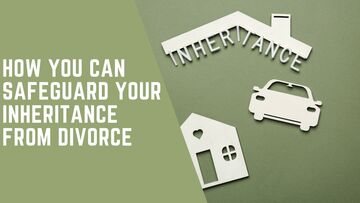Do I Really Need a Will?
Wills| 06.05.2022
What do Rik Mayall, Jill Dando, and Amy Winehouse all have in common? They all reportedly died without making a Will. It is believed that around 60% of British adults have not made a Will.
This means that 30 million people have not put their financial and personal wishes in the event of death in writing. All too often, Wills are not considered a priority by younger people, but this is a mistake that can have serious implications. Of course, thinking about our death is something most of us want to avoid in normal circumstances, but not having a Will is a recipe for many unintended consequences after death. In this article, we will look at the main reasons why you should make a Will.

Reason 1: Your estate may not be distributed according to your wishes
When a person dies without a valid Will, the Rules of Intestacy come into force; this is referred to as ‘dying intestate'. The Rules of Intestacy define exactly how the estate of a deceased person will be handled in the event of their death.
The Rules of Intestacy state that the estate of a deceased person will be distributed in the following way:
- If the deceased person has a surviving husband, wife, or civil partner, and surviving children, the spouse or civil partner receives all the assets up to £270,000 and all personal possessions. The remaining portion of the assets over £270,000 are apportioned as follows:
- the husband, wife or civil partner receives an absolute interest in half of the remainder.
- the remaining half is then divided equally among any surviving children
- If a son or daughter has already died, their children will inherit in their place.
- If there are no children, then the surviving husband, wife or civil partner receives all of the estate.
A well-drafted Will ensures that you make the final decision as to how the proceeds of your estate will be split and to whom.
Reason 2: Provide for your unmarried partner
Under the Rules of Intestacy a surviving partner who was not married or in a civil partnership with the deceased person has no automatic right to inherit any of the estate. By making a Will, specific provisions can be made for an unmarried partner if you wish.
Reason 3: Provide for your step-children
Only the direct descendants of the deceased stand to inherit under the Rules of Intestacy. Unfortunately, this does not include step-children. If the child has been adopted, however, they will be included. As such, if you have unadopted step-children to whom you wish to leave a portion of your estate, this legal document is essential.

Reason 4: Provide for others outside of your immediate family
Dying intestate also means that others you care for will not receive any of your estate, including friends, an unmarried partner, or other relatives. The only way to make specific provisions for another person who is not a direct descendant is to draft a Will. It is also possible to include organisations or charities in a Will.
Reason 5: Ensure your other wishes are carried out
Wills are not just used to determine who receives which portion of your estate; they also enable you to put your other wishes in writing and to have these carried out on your death. Such wishes may include:
- Funeral wishes, including where you might wish for this to take place or whether you want a particular religious tradition to be followed,
- Who you wish to appoint as executors of your estate,
- Appointment of guardians,
- Gifts of money,
- Gifts of personal possessions,
- Gifts of pet animals,
- Gifts of real property,
- Gifts to charity.
By drafting a Will, you can make sure that any personal wishes you have are properly and clearly captured in writing and followed through in the event of your death.
Reason 6: Avoid family disputes after your death
Many people are unaware of the potential for familial disputes and discord that dying without a Will can cause. Those who are reasonably expected to inherit from you may claim against those who receive some of your estate, leading to greater acrimony. Disagreements may also occur if personal possessions are not passed down to family members or other loved ones who have been promised them.
Reason 7: You can decide who will look after your children
In the event of death, if your children are left with no surviving parent or appointed guardian without a Will, you will have no final say on who will look after them. This matter will then be referred to the courts to make a decision. By drafting a Will, you can appoint legal guardians that you trust to look after your children. This alone is a significant reason to invest in will writing services.
Final words
Not only is it important to make a Will that reflects your wishes, but it must also be legally valid. For a Will to be valid, you must have mental capacity, and it must be clearly written, properly witnessed, and freely entered into without any coercion by another person. For this reason, it is important to engage the services of a specialist Solicitor who can guide you through the process, ensure your Will is valid, and store your Will safely.
Pearcelegal has a dedicated Wills and Probate team who can advise and represent you on all private client matters. To make an appointment, please contact us on 0121 270 2700 or enquire through our contact form.
Expert advice for you Book a free consultation
The team at Pearcelegal will be delighted to discuss your legal matters and give you a no-obligation quote.



